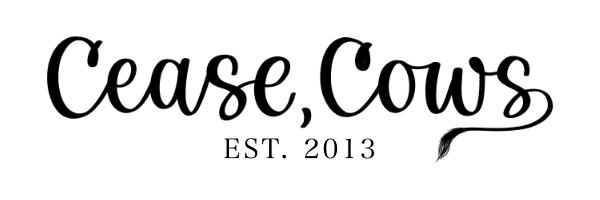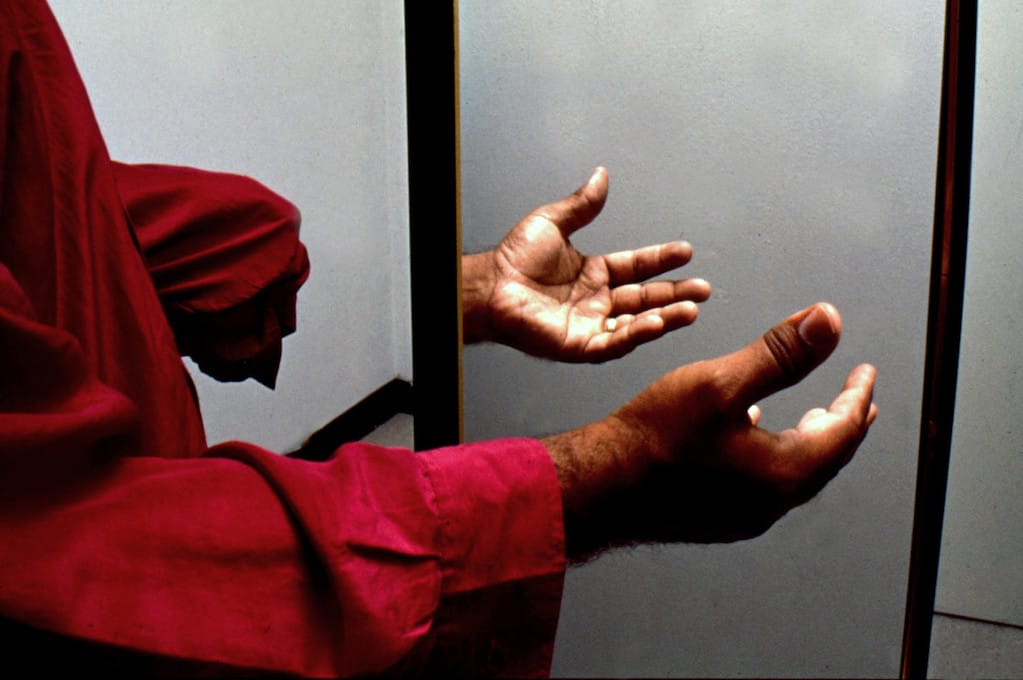My husband comes in from the blizzard. He stomps the snow off his boots and says he can’t believe how low the temperature has dropped, and how fast. He rubs the tip of his red nose into my palm.
He says, “Frostbite.” “Drama queen,” I say. Then there is that now-familiar crack, and he is gone. He reappears an hour later in the bath I’d drawn for him in the meantime. His snowsuit is still on.
He disappears at startling rates these days. It used to be just once, maybe twice, a month. We’d be walking down the produce aisle or skating on the pond behind our home, and there’d be that crack, like the sky snapping in half, and he’d be gone. He’d reappear quickly, though. Once he showed up under the ice. I had to hack away at the pond’s surface with my skate until it splintered enough to pull him out.
He used to have this look when he reappeared, a look like he was lucky to be back. Like the return was a whim, a mercy from somewhere else. He used to grab me after, hold me so hard, leave finger-length bruise-stripes around my neck and the tops of my arms. Why can’t you ever come with me, he’d say. Why can’t you ever come with me.
Now, he’s gone at least a couple times a day. Each time longer and longer until I’m sure that this Is It, this is the one that’s gonna take him forever. I am growing increasingly ready for each next time to be that time. Now, when he’s thrown back to me, I can sense his disappointment. It comes off of him like a heat.
There are other people vanishing, too. It’s hard to spot them at first, but they find me. One of them is a student of mine at the high school. She’s in my advanced geometry class, fourth period, right before lunch. Except she doesn’t eat lunch, she doesn’t eat anything. What used to be her body is now paper-skin over thin bone, self-whittling more each day. She tells me that when she looks in the mirror, she sees a person who is gigantically fat. I let her stay in my classroom and do her homework, avoiding the cafeteria. I sit at the desk across from her and eat my tuna sandwich and go over lesson plans and watch her.
“Girl,” I always say, “you are disappearing.” “Thank you,” she says. I ask her what it feels like. “Like refining everything down to the point,” she says. “Like being an exposed nerve.” Wouldn’t that hurt, I ask. I ask if I can hold her hand.
She unfolds her fragile arm towards me and we intertwine our fingers. I am always very careful not to cover hers entirely with mine, although she would want that. We sit there, holding hands across the desk, until the bell rings and she’s off to biology.
My husband comes downstairs after his bath. He is wearing his soft blue robe. His hair smells like mint. He comes into the kitchen, asks what I’m making. It’s tomato sauce with ground beef. He pinches some pink meat off the pan and puts it in his mouth. It’s still raw.
“You smell nice,” I say. He doesn’t say anything. I kiss him, and he just stands there. I try again, but he does nothing, won’t let me in.
“I’m tired,” he says. Then there’s that crack again, and I’m alone in the kitchen.
Our neighbors have an adult son who still lives with them. He has cancer in his bones. Every time I see him, a new piece is missing. First, it was his right foot, then the rest of his leg below the knee. His hair, eyebrows. Eyelashes, one by one. The color from his skin. I haven’t spoken to him. Every time I knock on my neighbor’s door, they tell me he’s not up for visitors. All I want to know is if it’s easier to go like that, bit by bit.
I watch the meat darken in the pan. I imagine eating it all by myself, day after day, the same meat from the same pan. I imagine getting fatter and fatter, disappearing myself into a new body, one that I made but that isn’t mine.
I look down at my hands. I remember something my husband told me long ago, after we had first met, about how people who have lost a hand can feel pain in the hand that’s not there, a phantom clenching. To fix this, the person must place their hands into a box with a mirror in the middle and a hole on each side. The good hand goes in the side with the mirror, the stump in the other. The reflection makes it look like they have two good hands, and if they unclench the phantom hand, move it around like an orchestra conductor, the pain stops.
I imagine my husband disappears into his own mirror box. That right now he is with his phantom wife, kissing her shoulder blades. She teaches music, not geometry. He dips his lips into her skin. She waves her arms over him like an orchestra conductor. I close my eyes and try to feel what she feels, but it doesn’t work. I wonder if some phantom pains are too strong to be killed by the illusion, or if anyone’s ever strangled themselves dead with a phantom hand.
There is a pounding on the front door. I open my eyes and turn the stove off. I wipe my hands on a dishtowel and walk towards the noise.
My husband is on our front porch. In his robe, barefoot, ankle-deep in snow. He is angry. He pushes past me and into the warmth of our house.
“Took you long enough,” he says.
He always makes me regret missing him.
I think about my vanishing student and my neighbor’s vanishing son. I imagine them calling my husband a coward, saying he knows nothing of what it’s really like. That what happens to him doesn’t count because he goes quickly and comes back whole.
From my bed, I watch the snow fall outside my window. The weather man said it’s going to snow all through the week, that the roads will be covered. Nobody will know where the boundaries are. My husband turns off the lamp, and I feel him get into bed next to me. I listen to his breathing, hear it getting slower and slower until he falls asleep. Then, I hear the crack, and I don’t hear him anymore. I close my eyes. I can’t fall asleep until I hear that crack.
–
Alexandra Kessler is an MFA candidate in Fiction at Brookyn College. She received her BA from The Kratz Center for Creative Writing at Goucher College in Baltimore, MD. She was awarded two summer fellowships from the Kratz Center for Creative writing in 2013 and 2015, and the 2014 Lizette Woodworth Reese Award in Fiction, naming her Goucher’s “Writer of the Year.” Her work has been published by Fiddleblack Press, Spartan Lit, Driftwood Press, and others. She lives in Brooklyn, New York.
Lead image: “phantom-limb-mirror-1920×1080” (via Flickr user Golan Levin)

